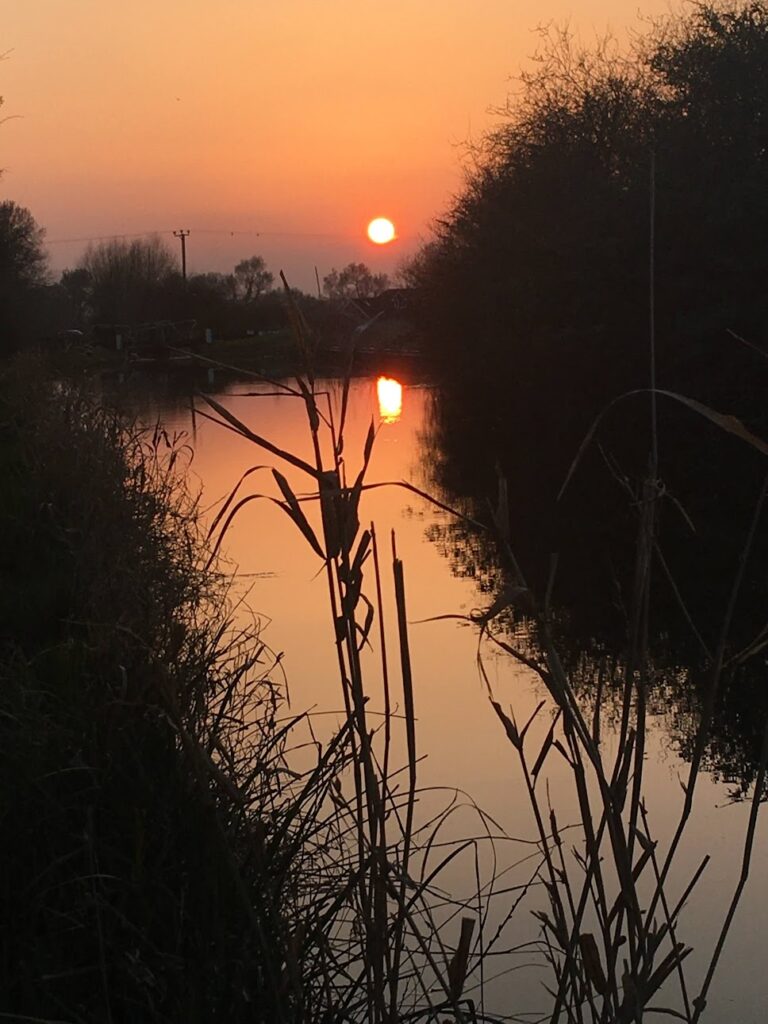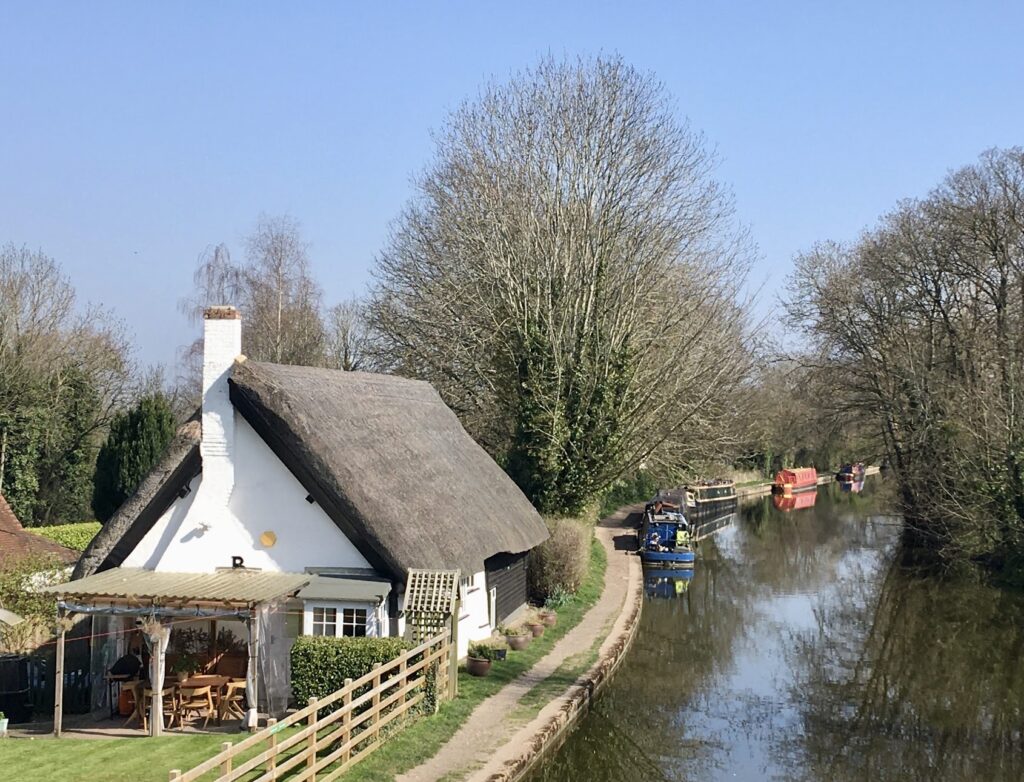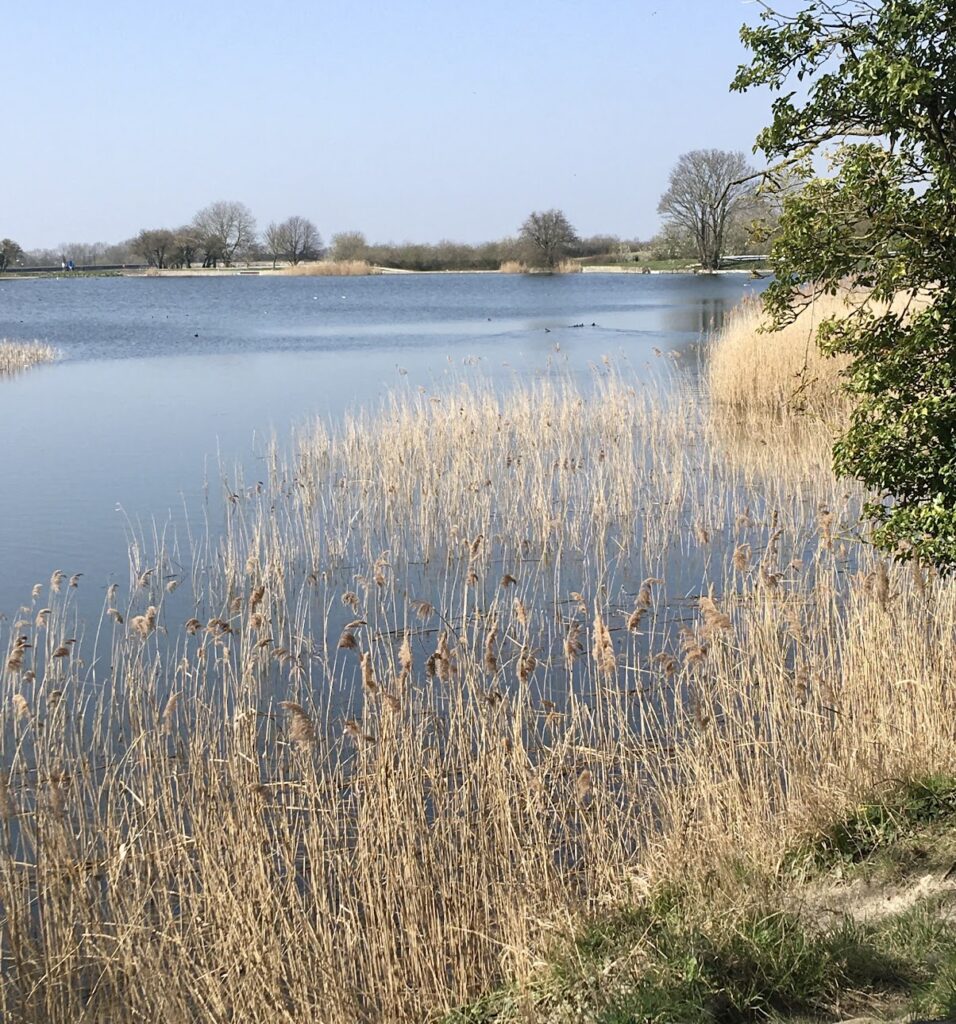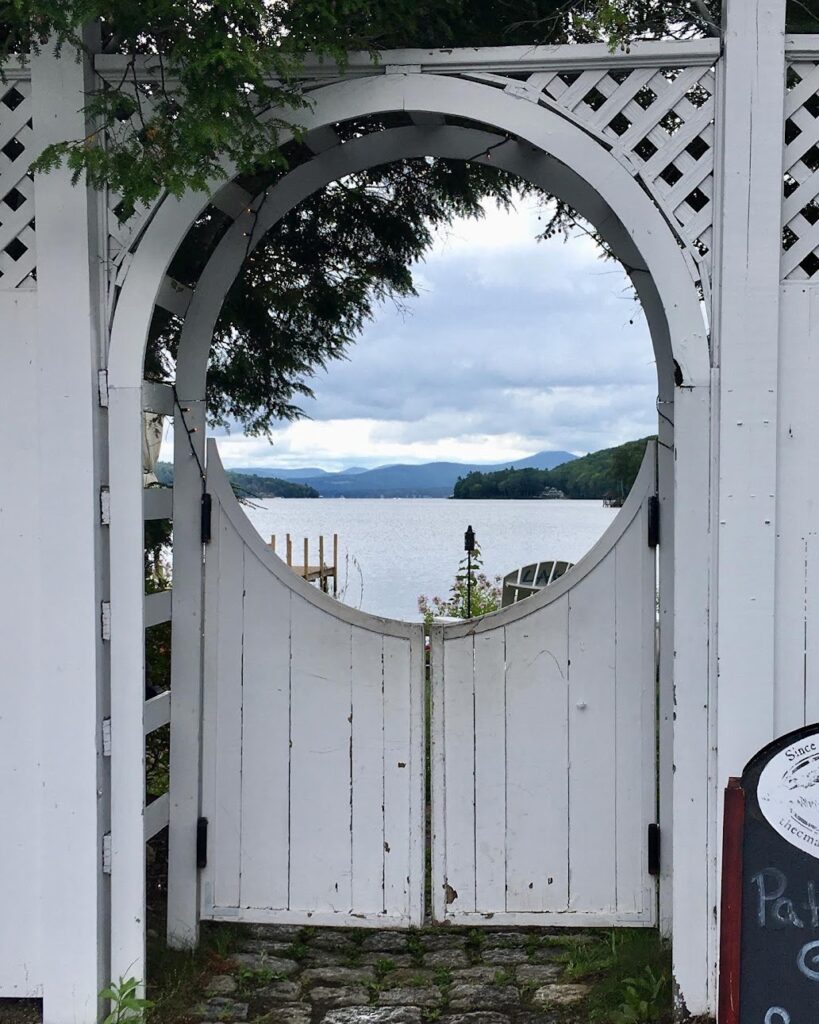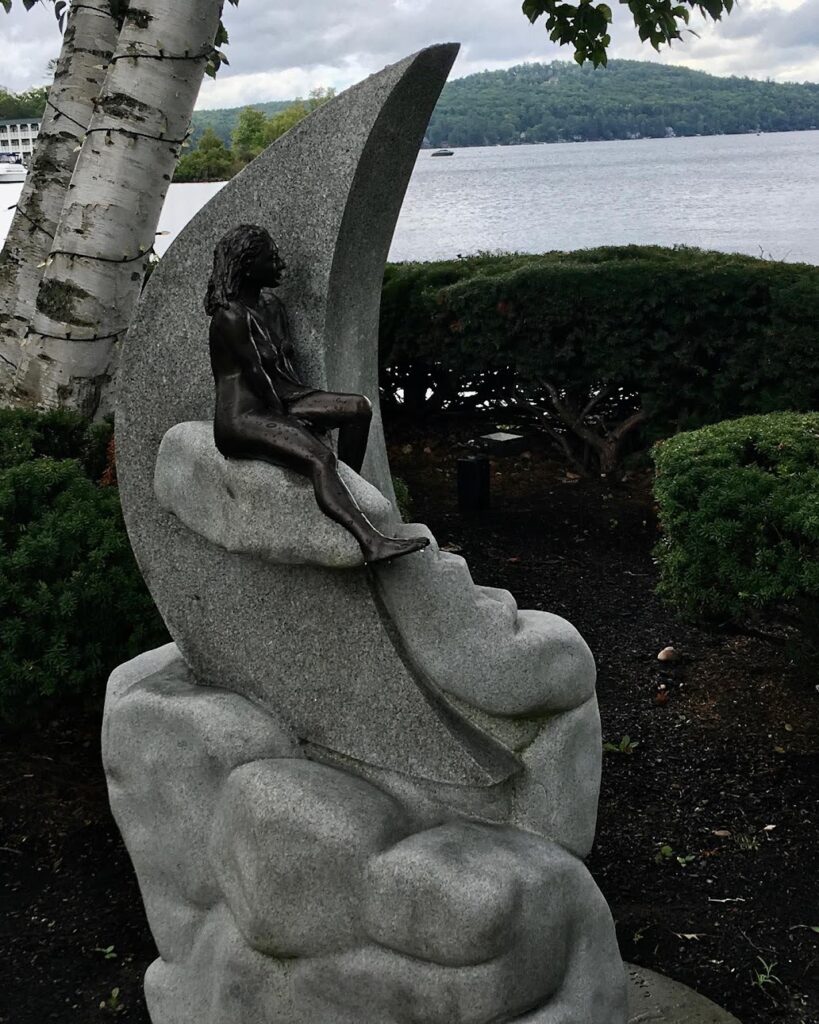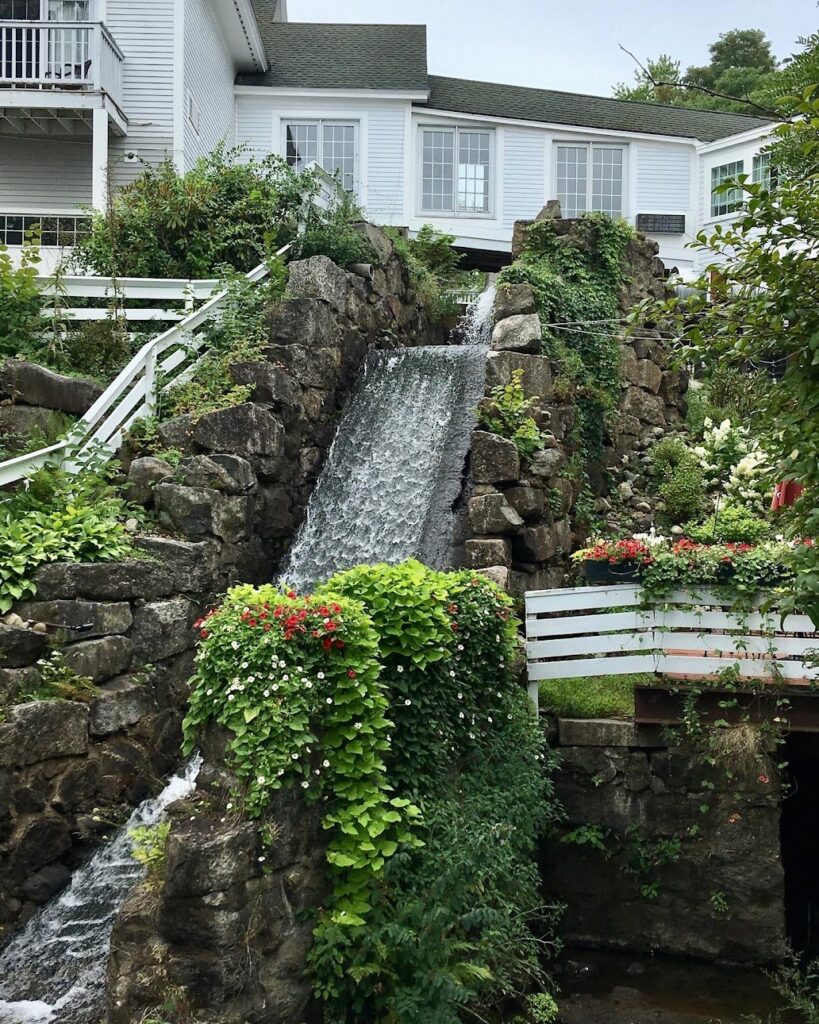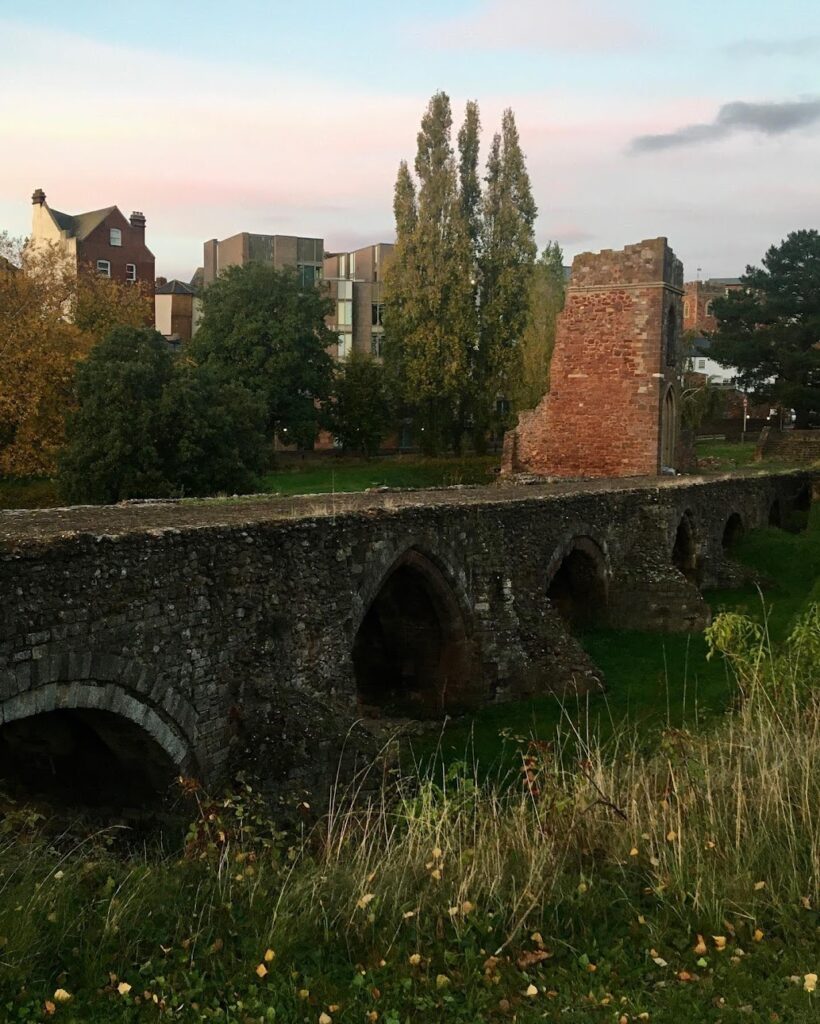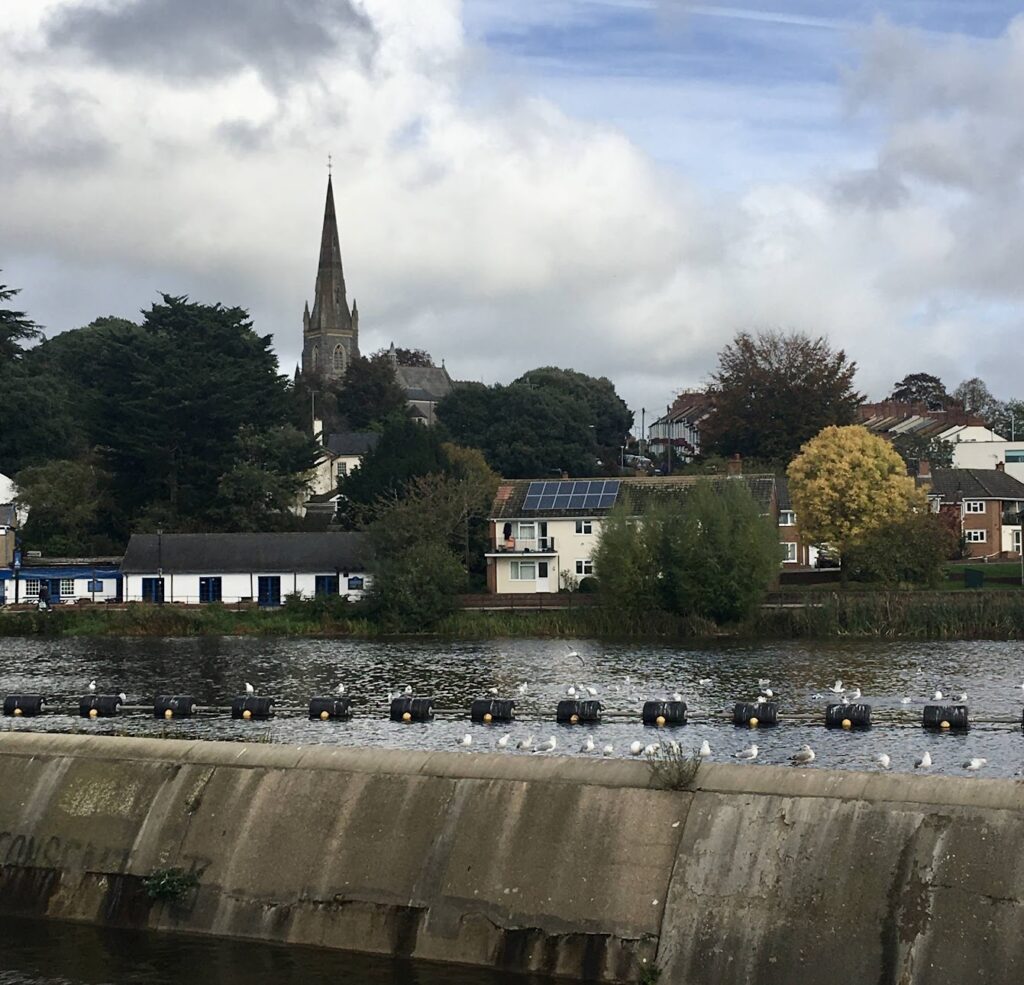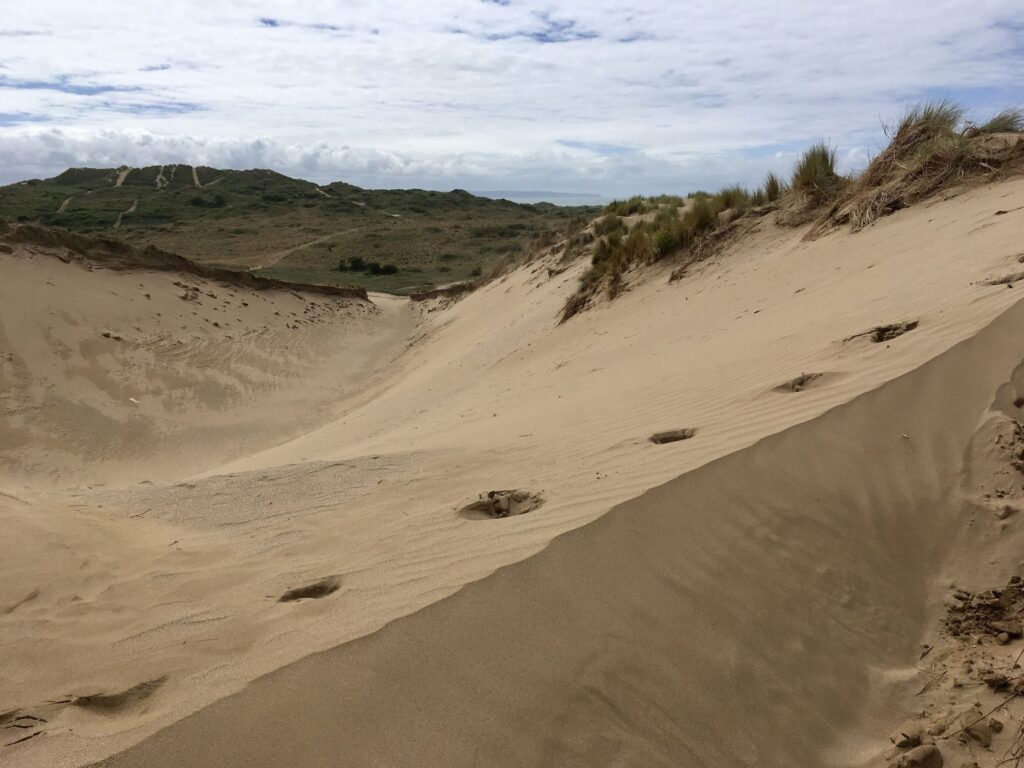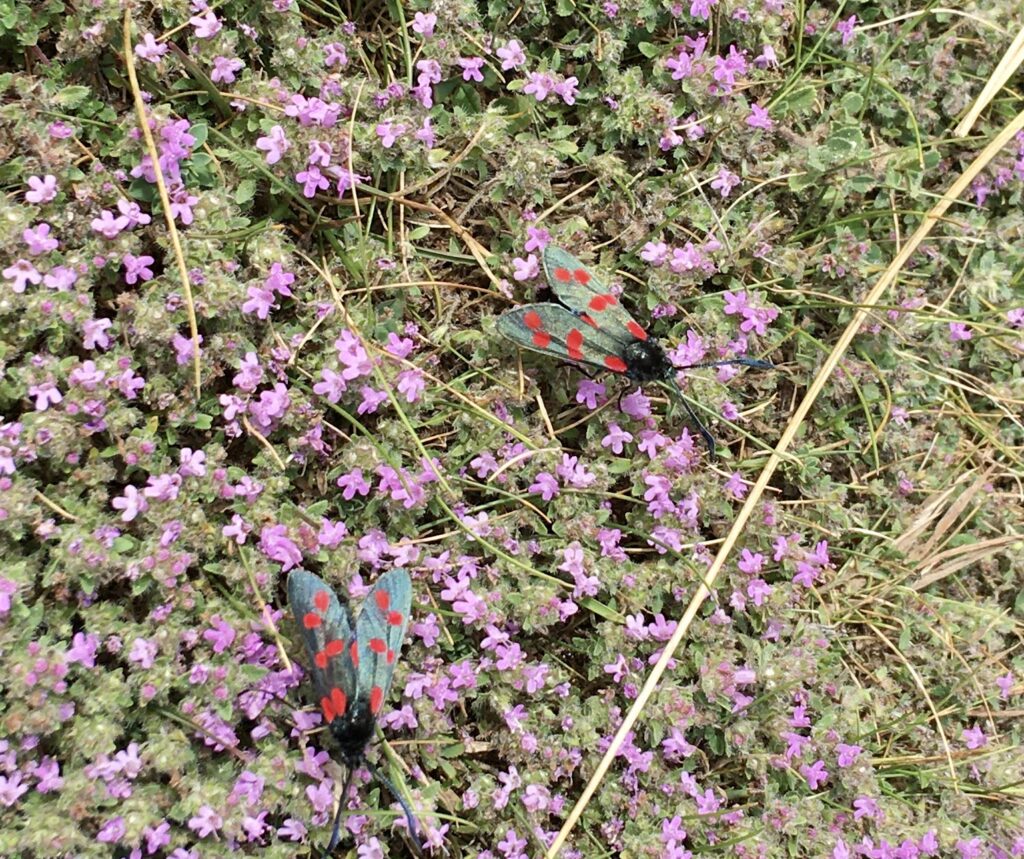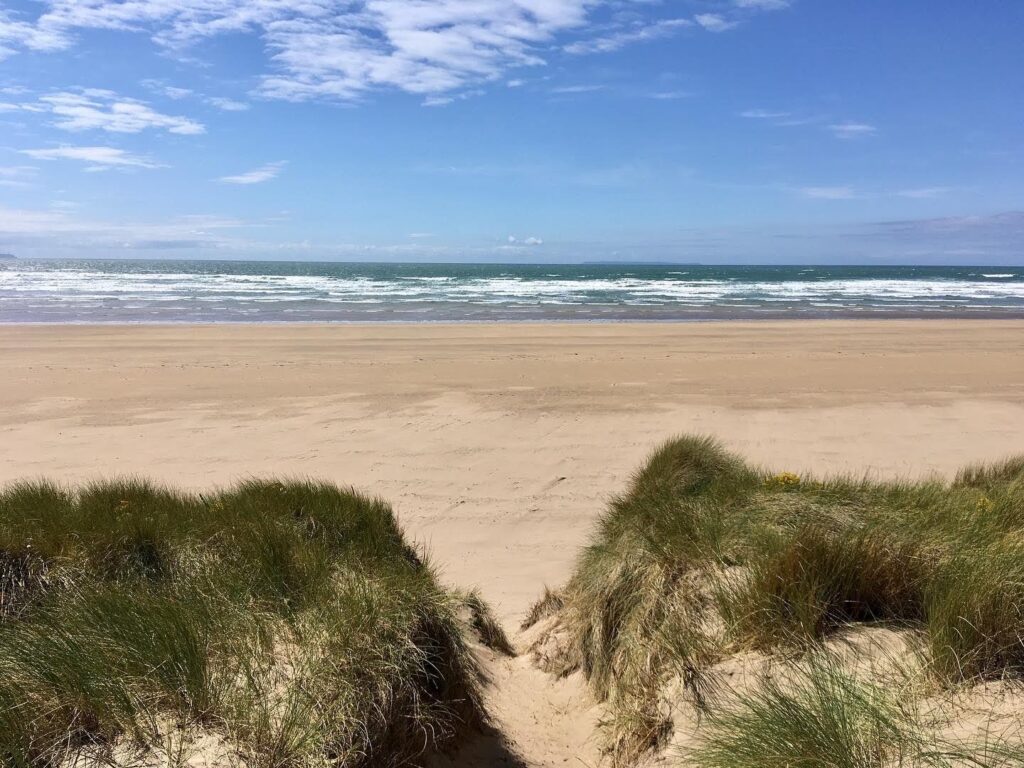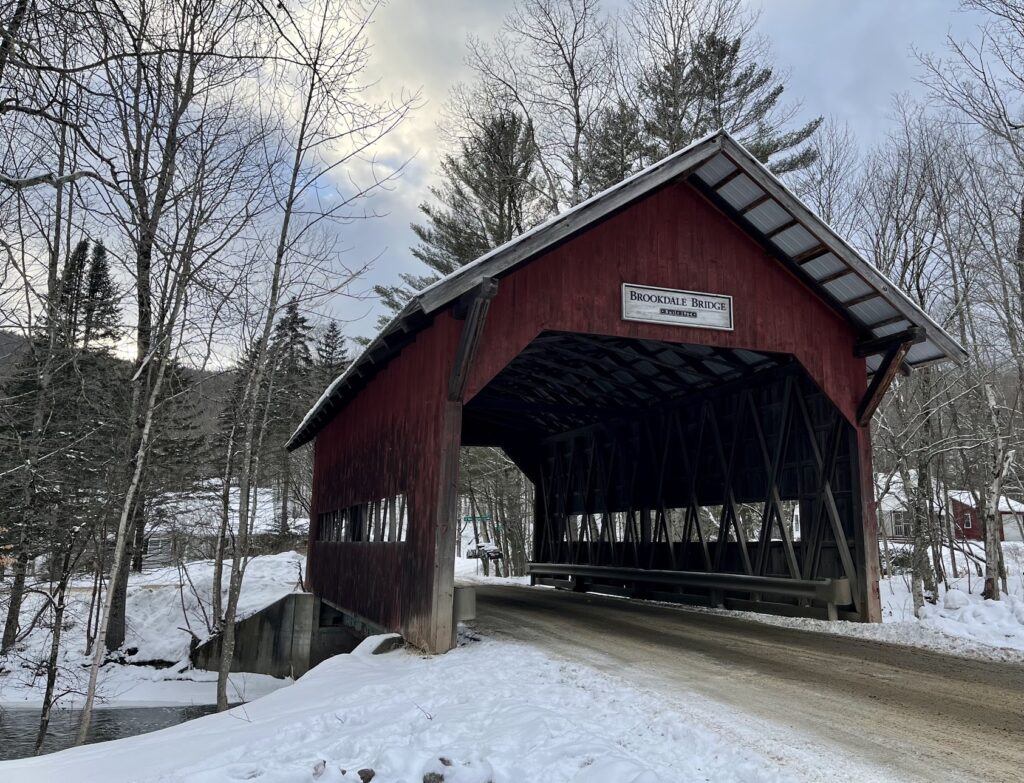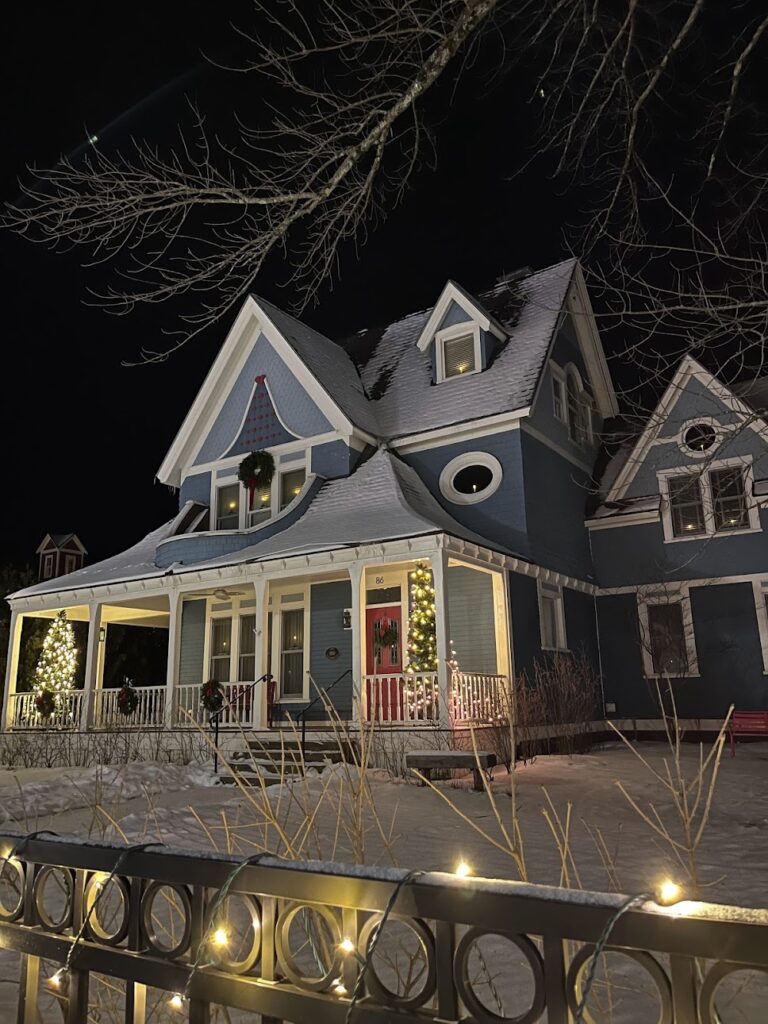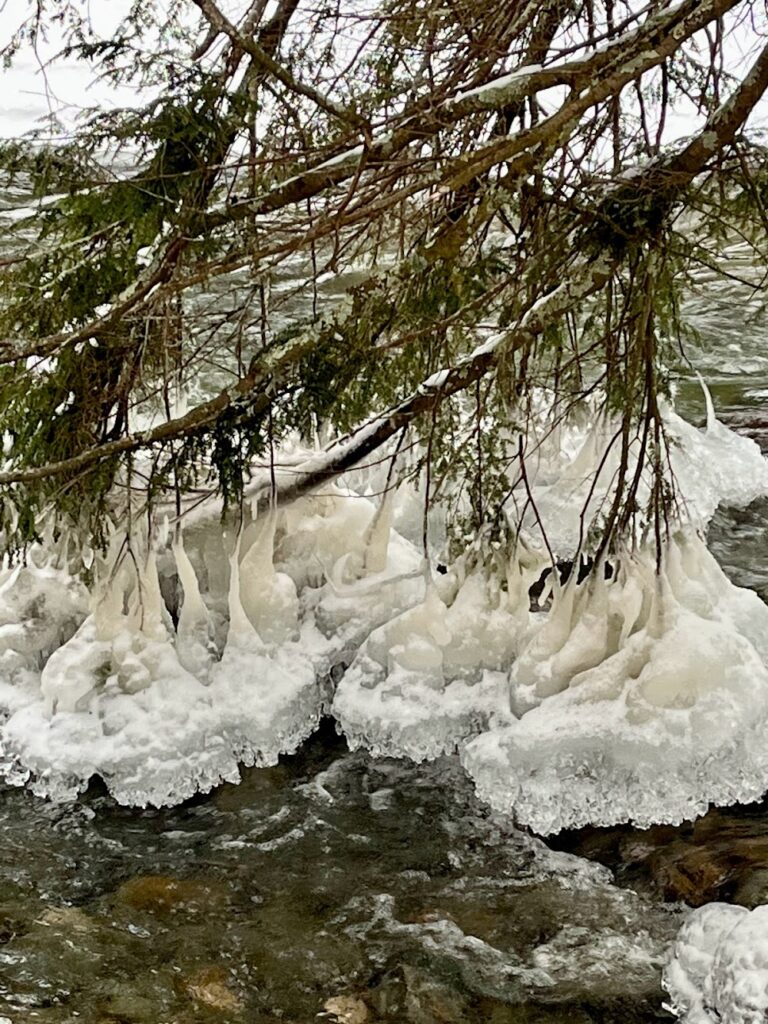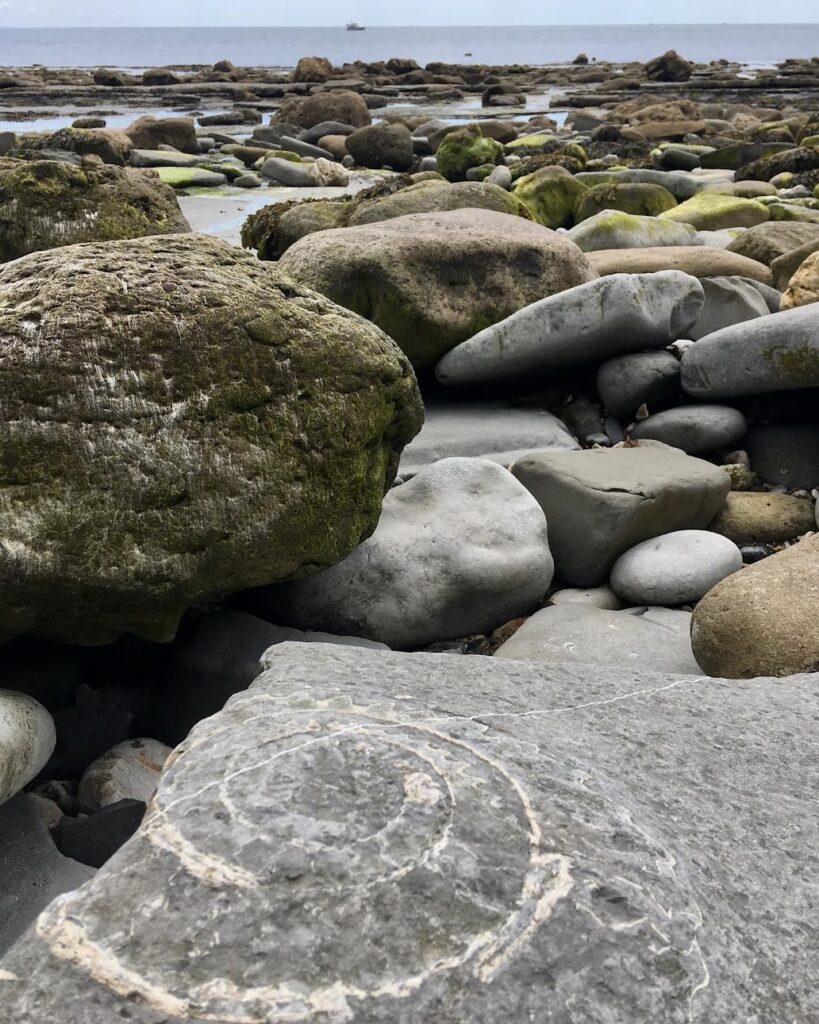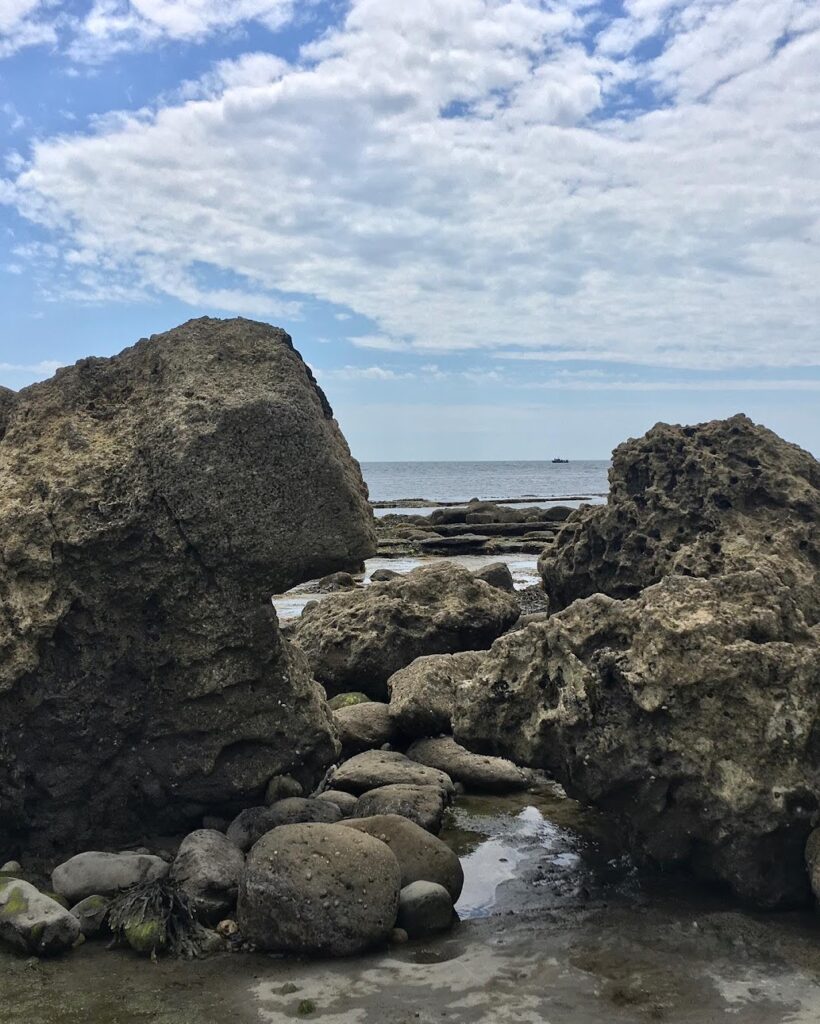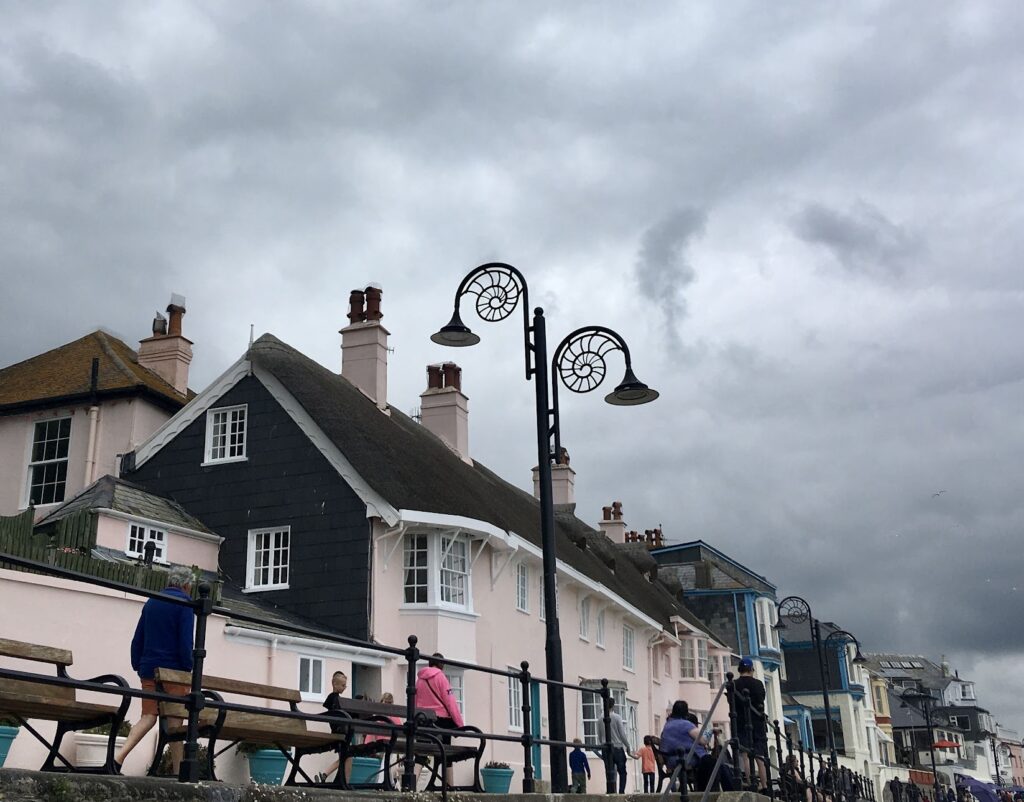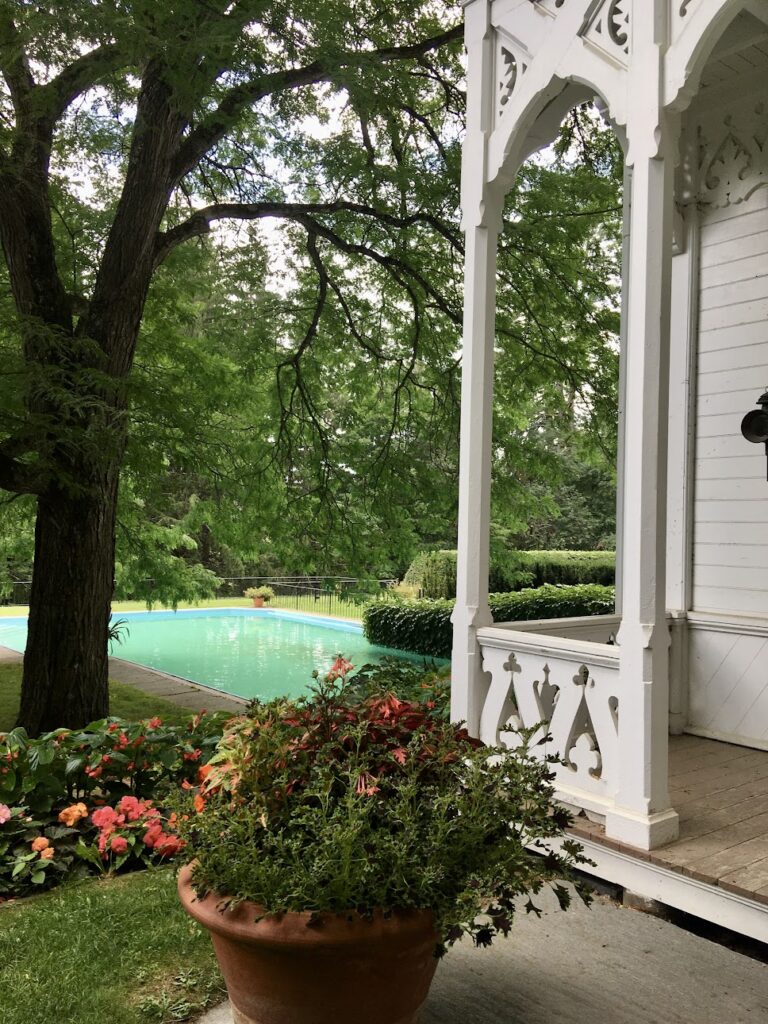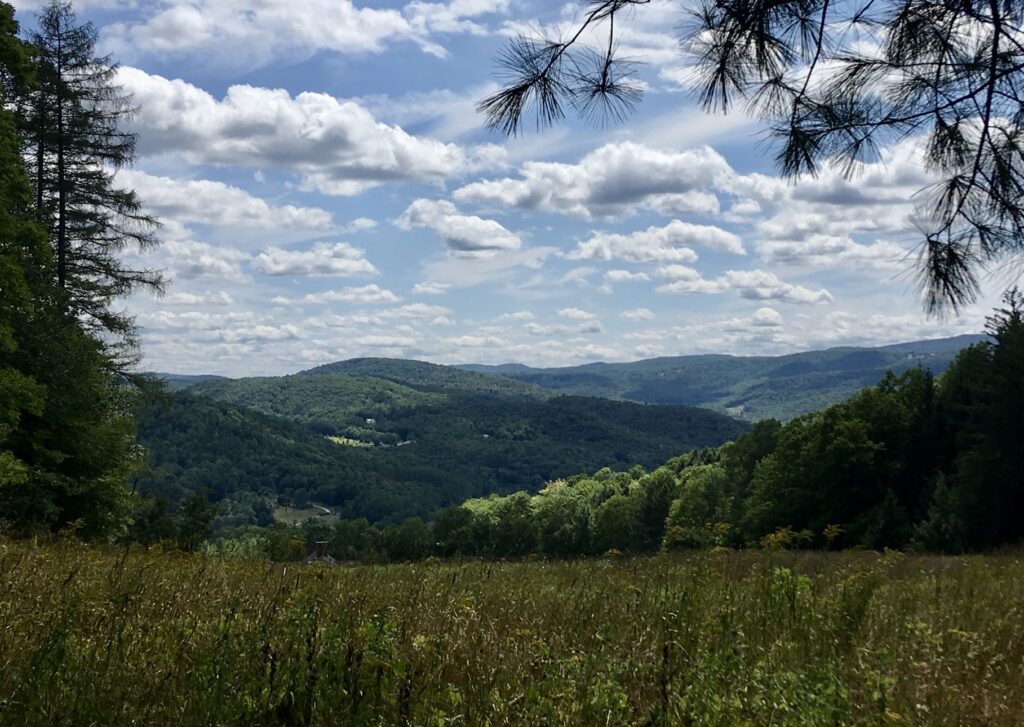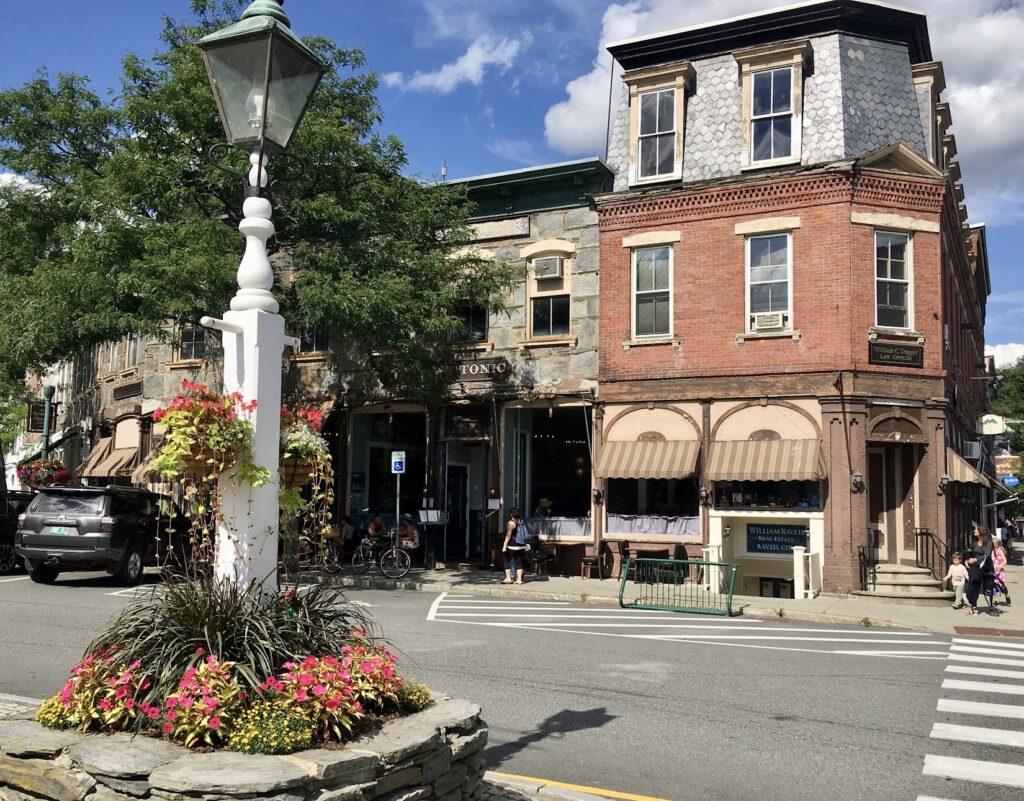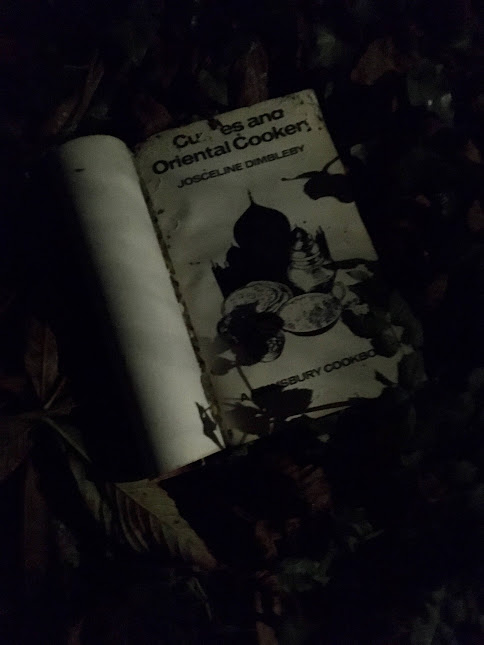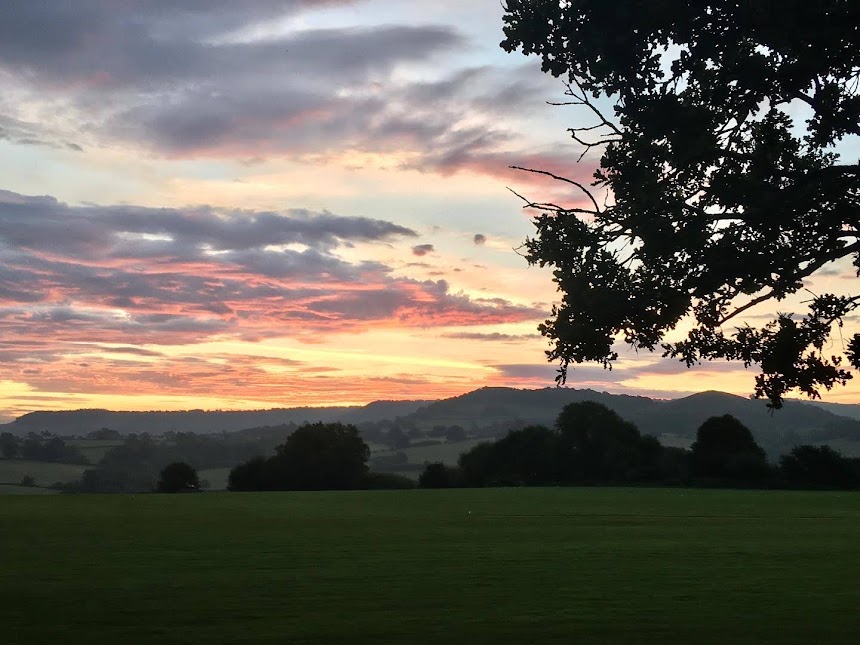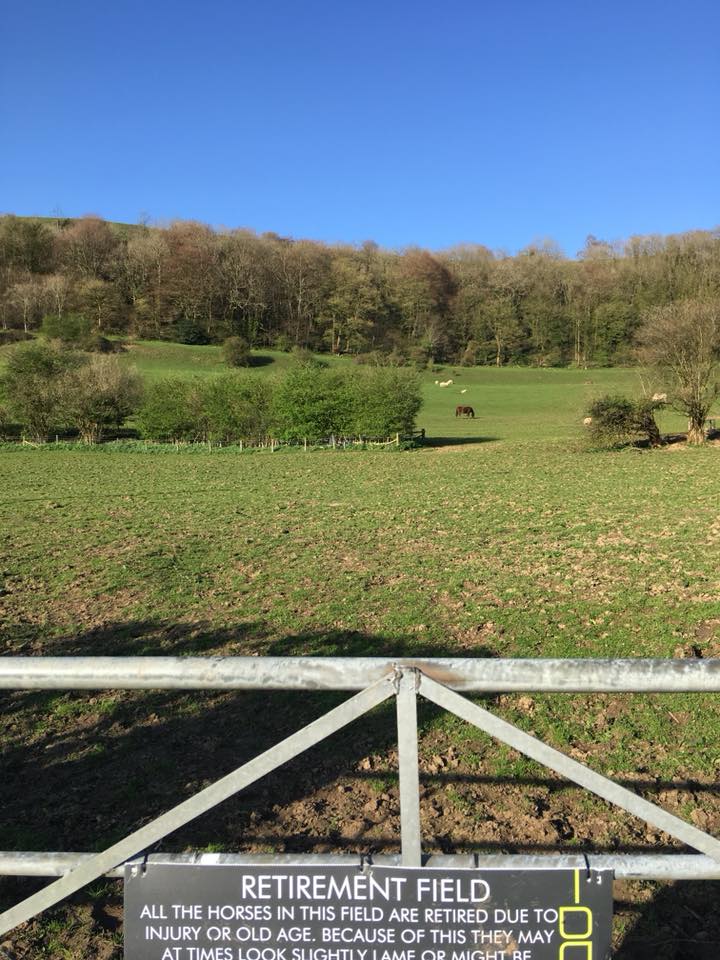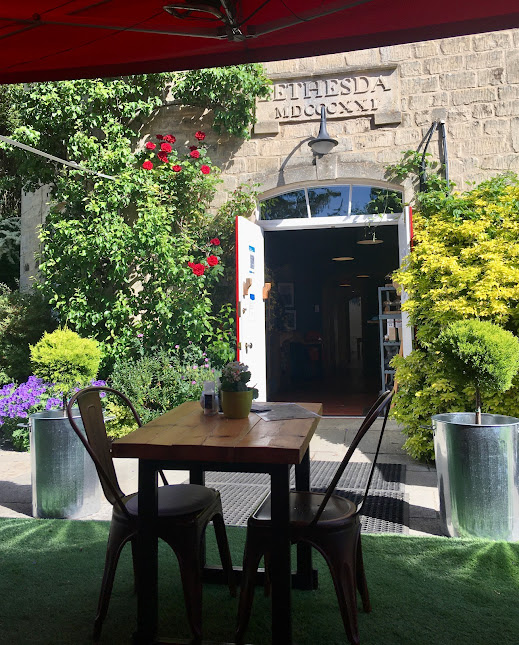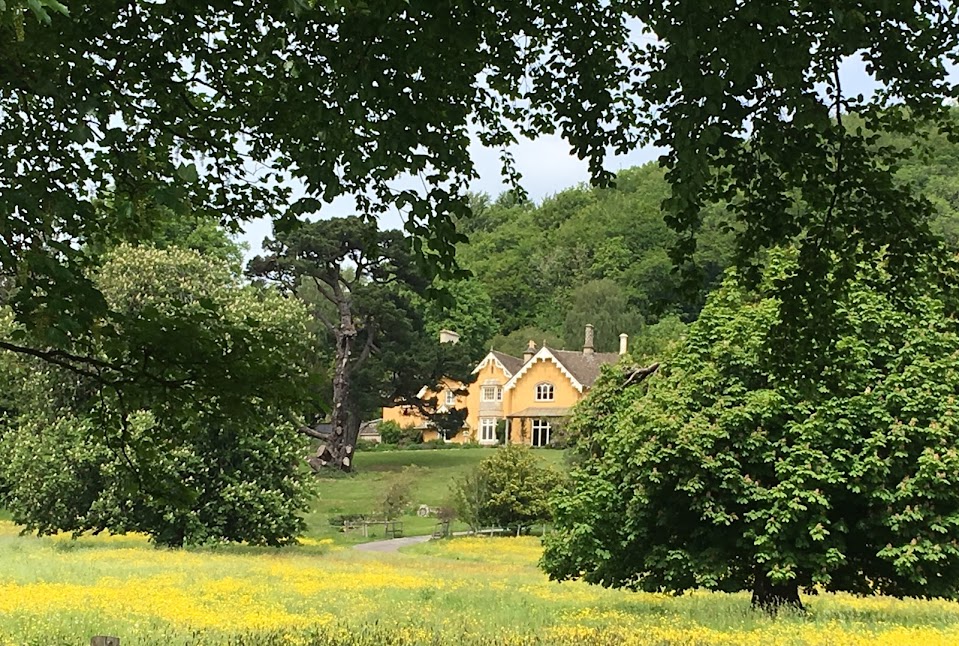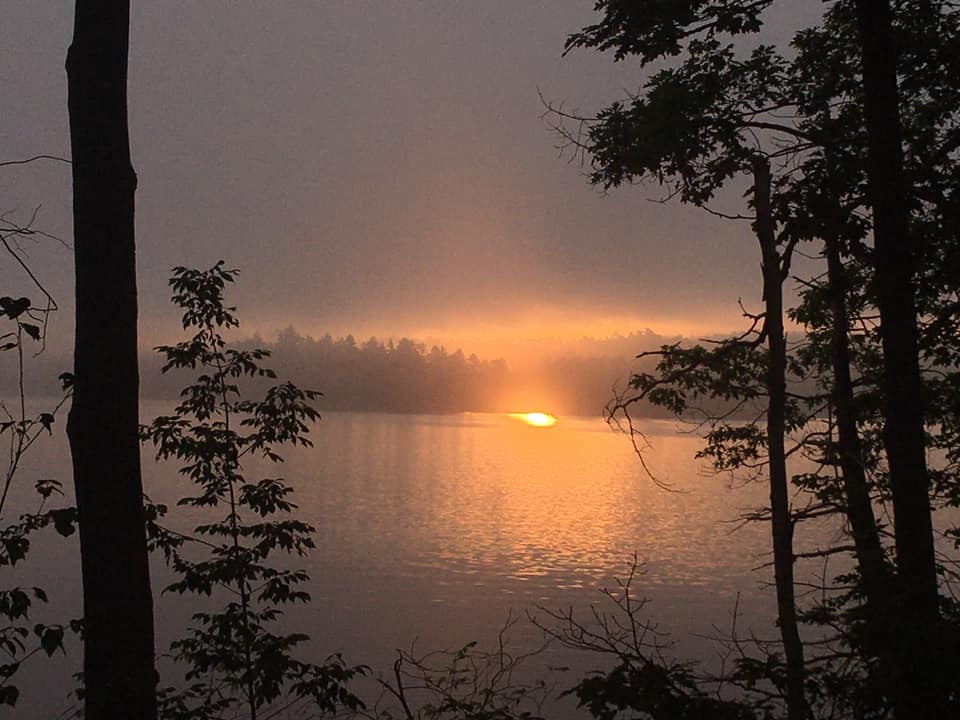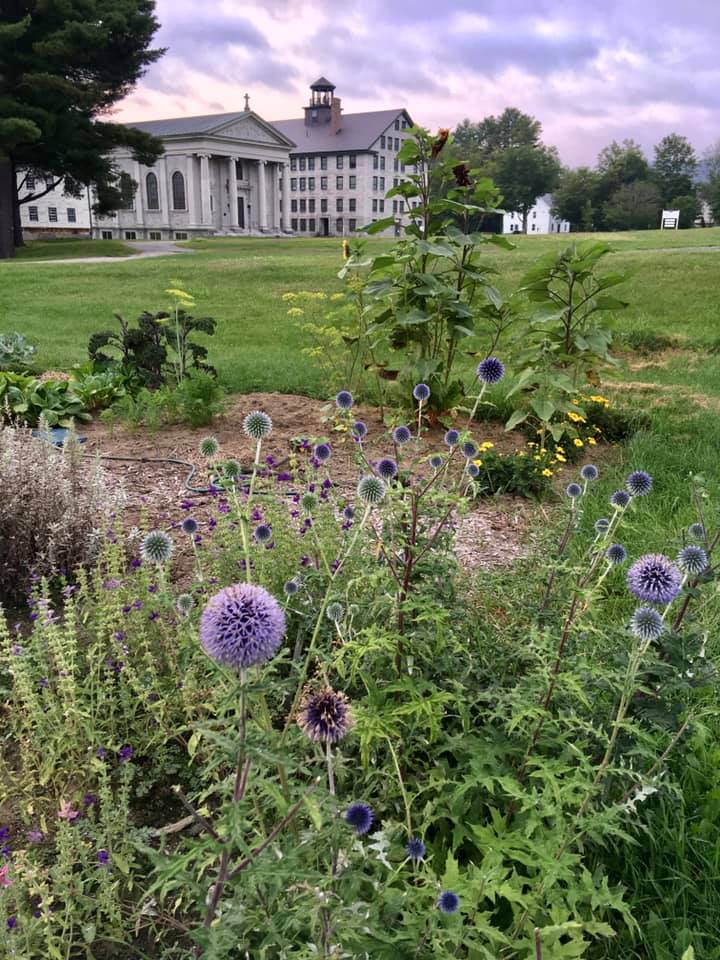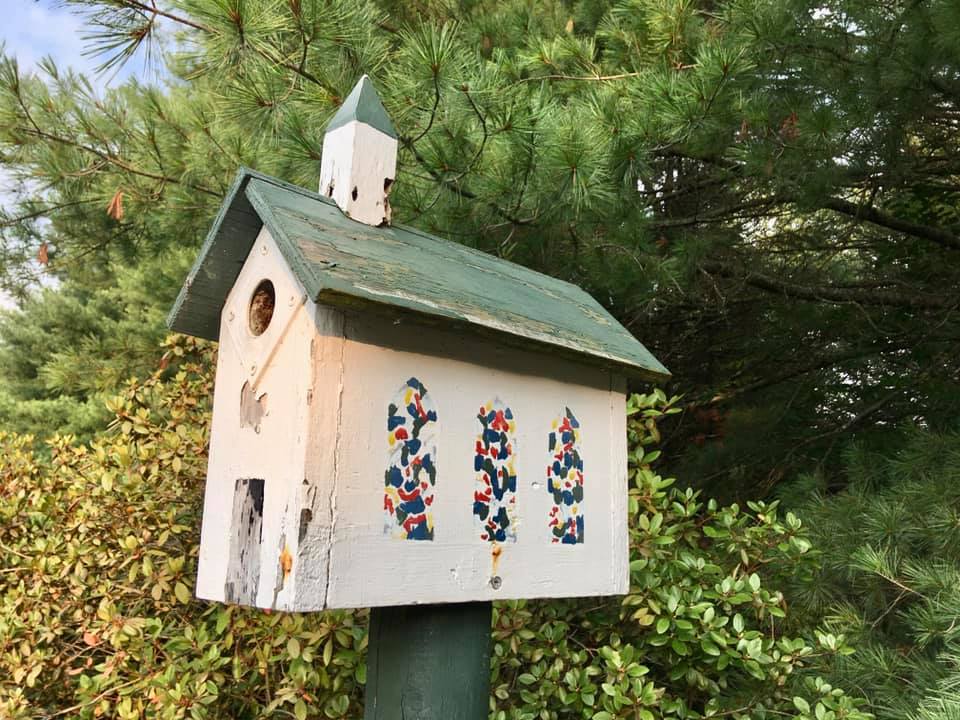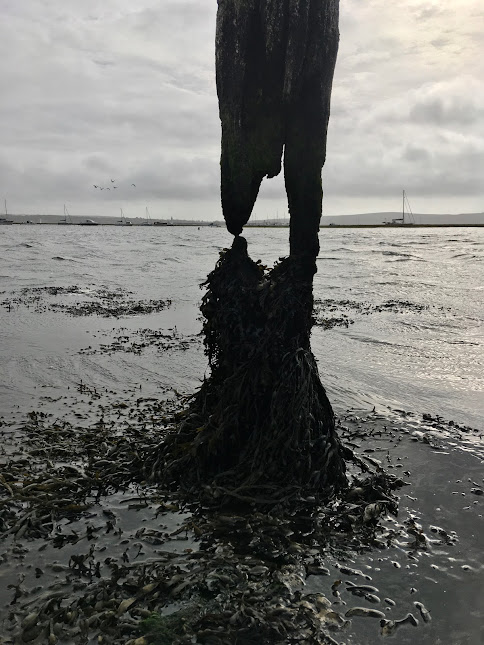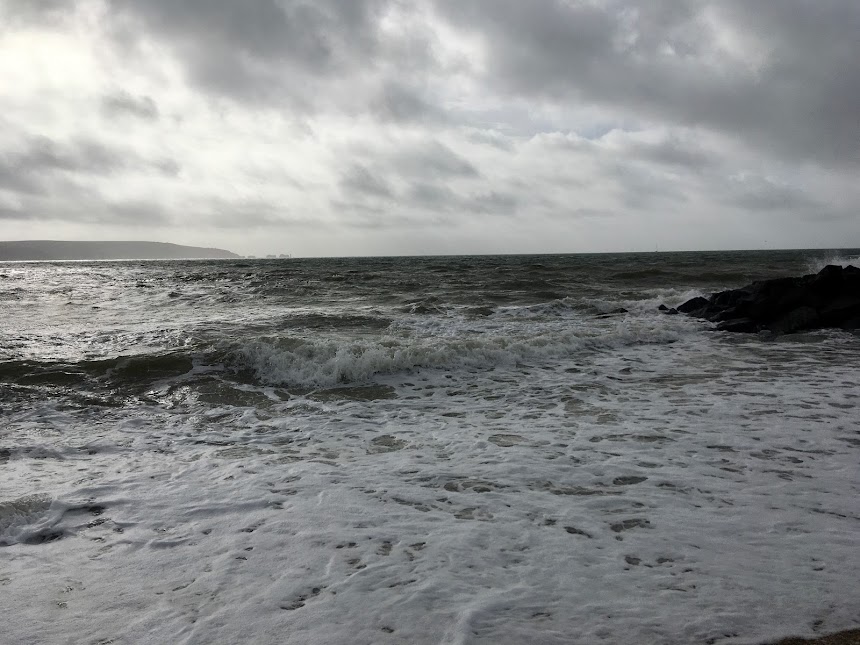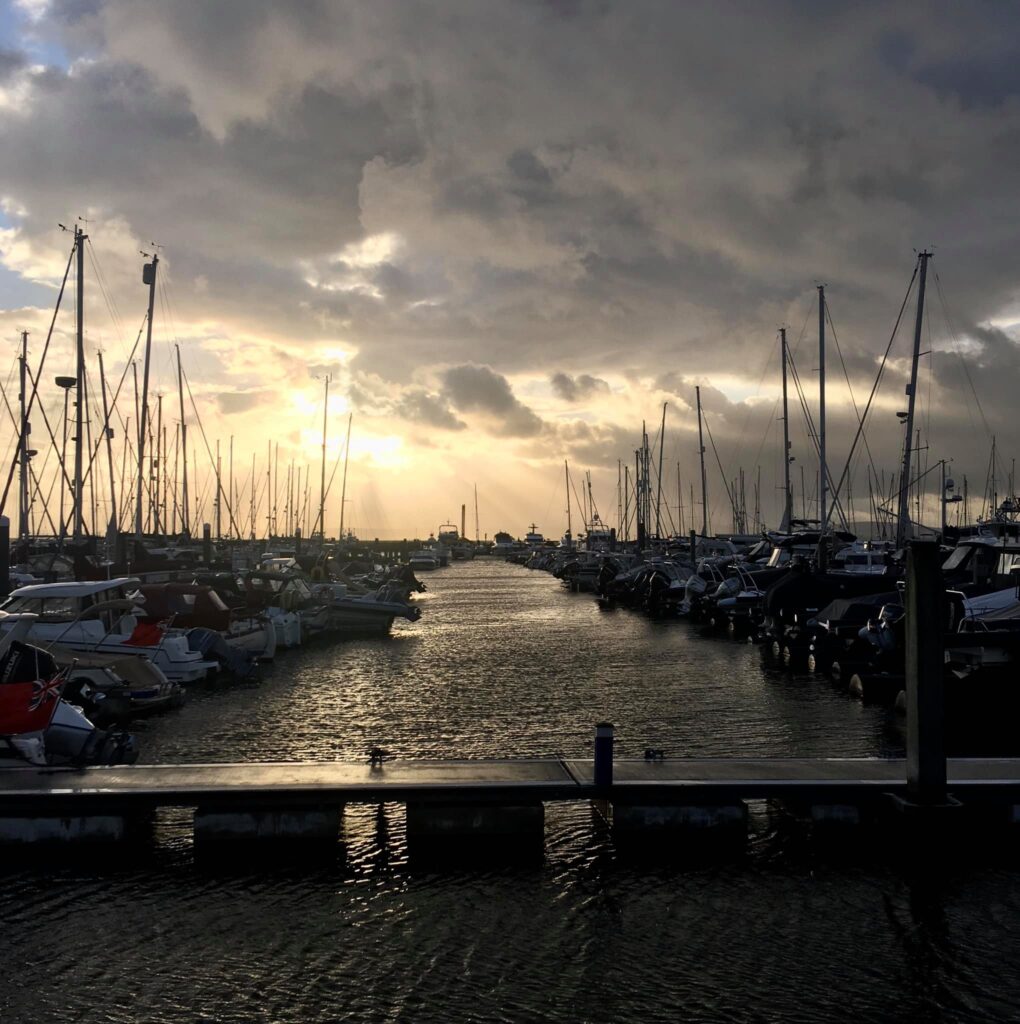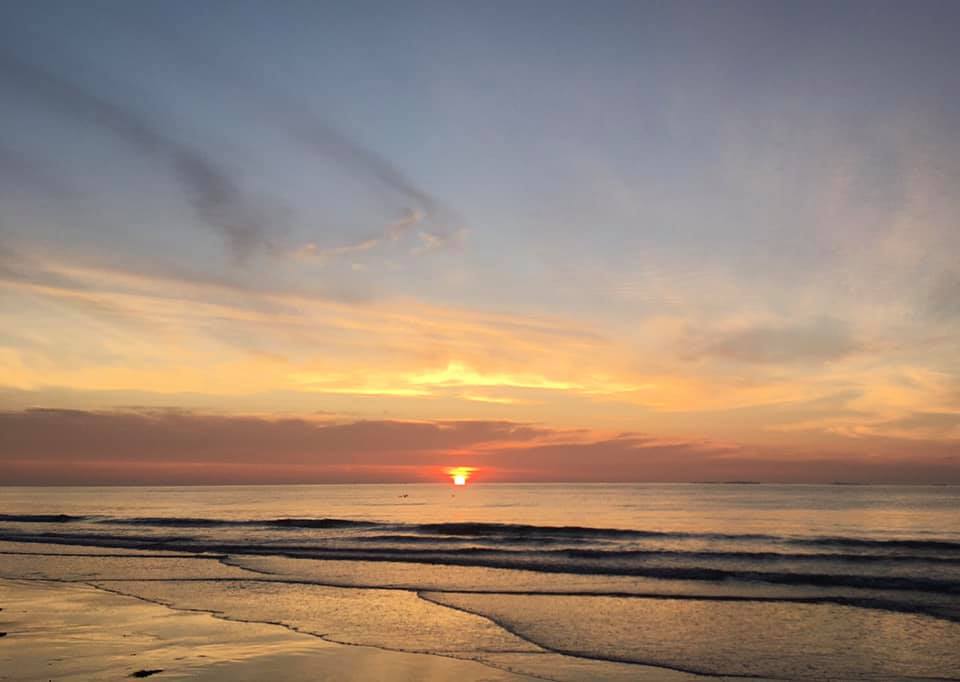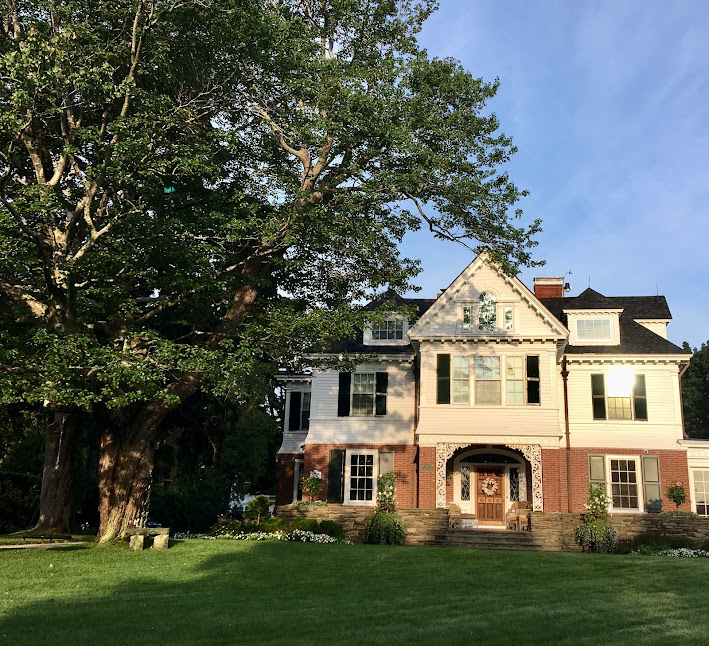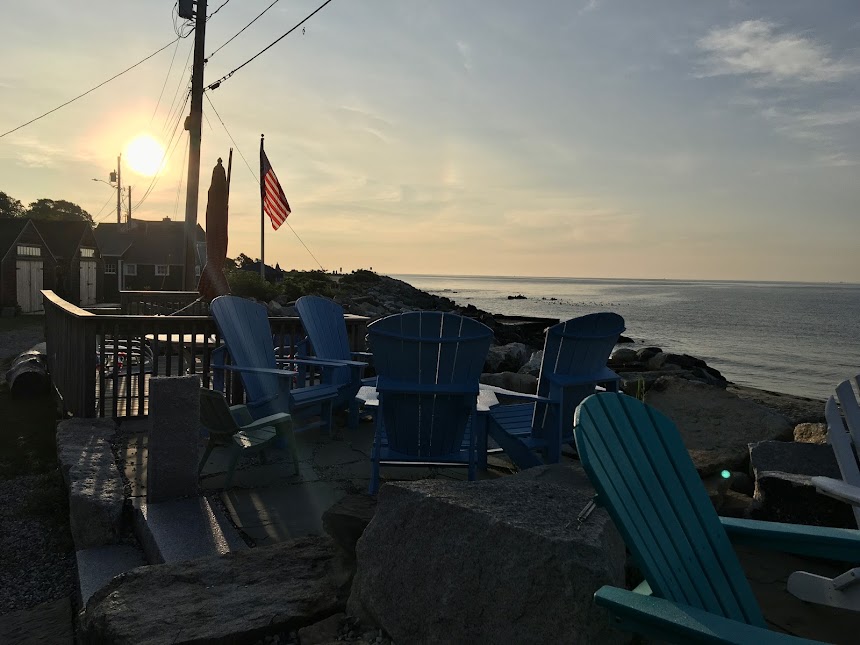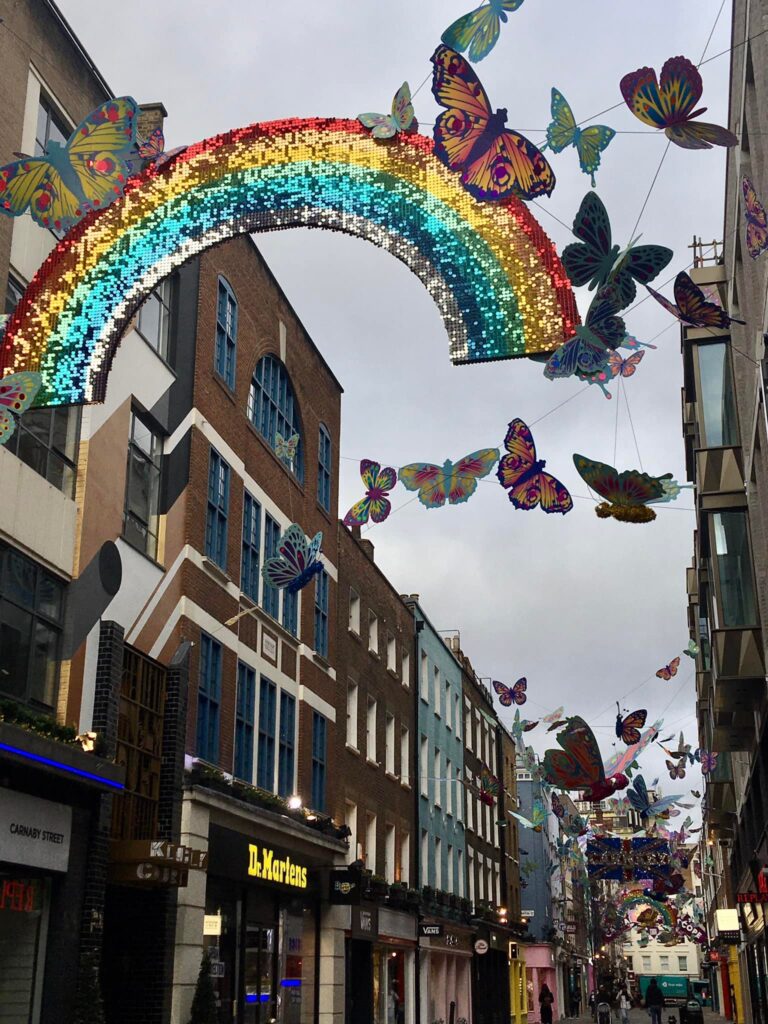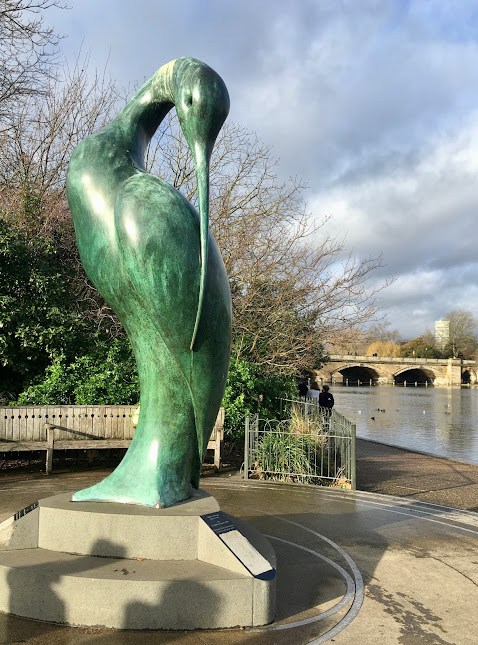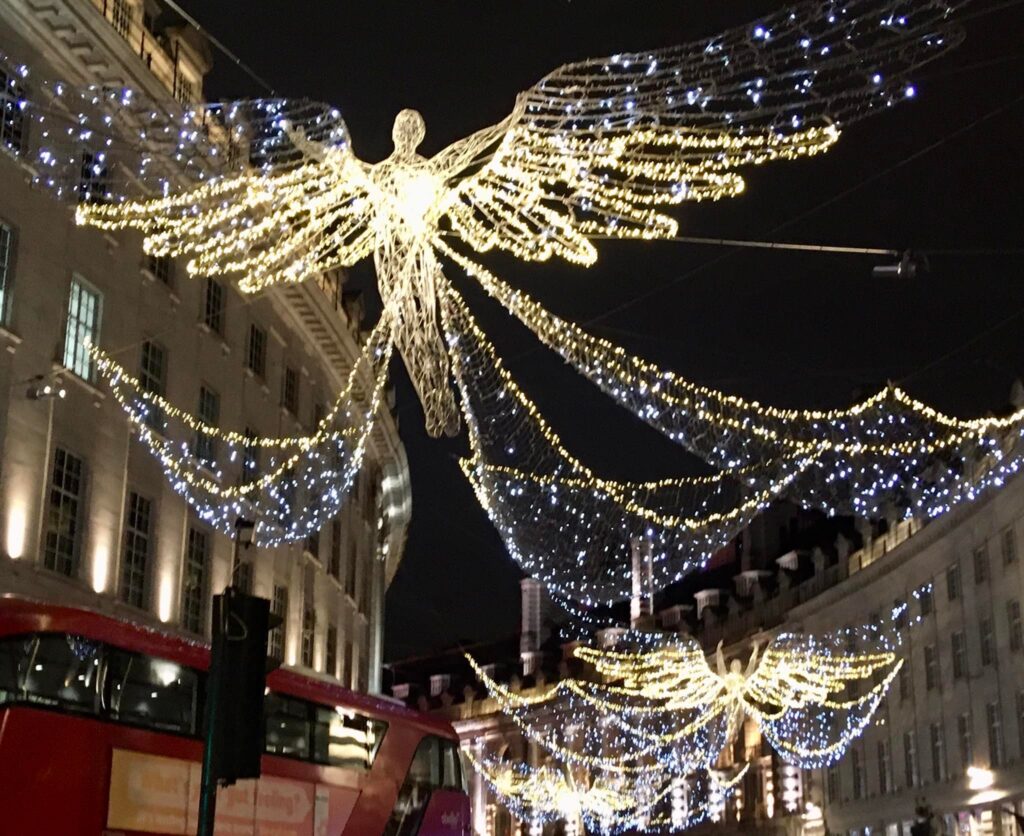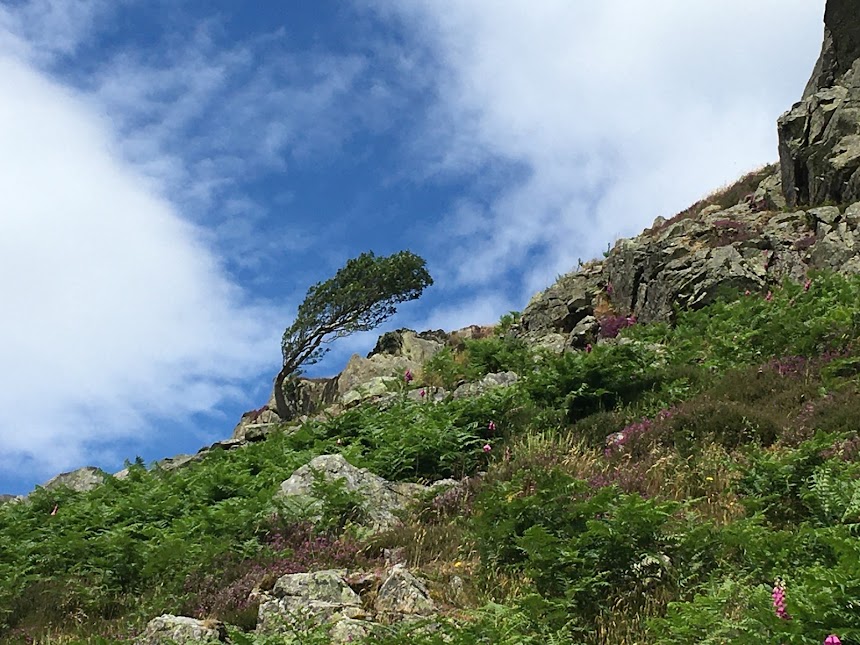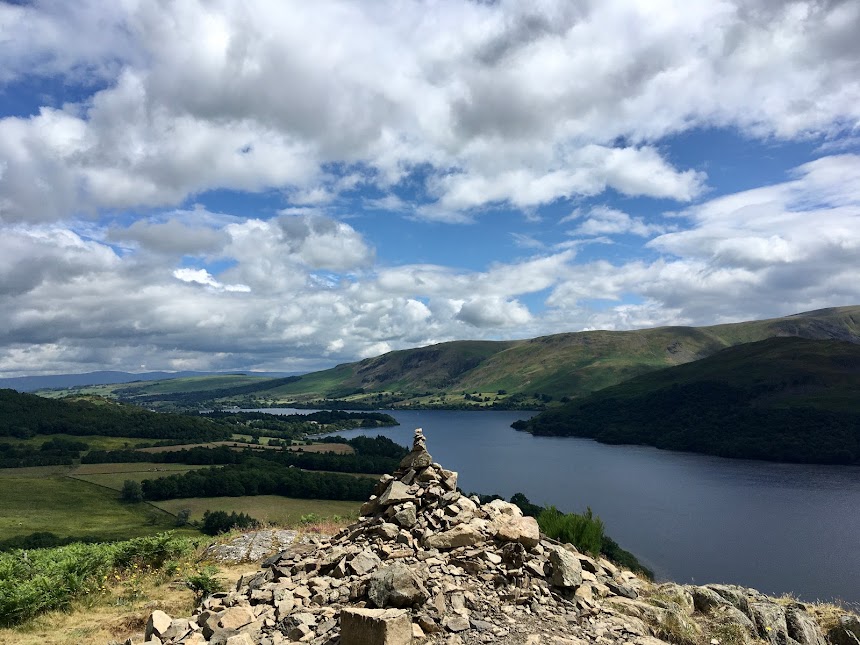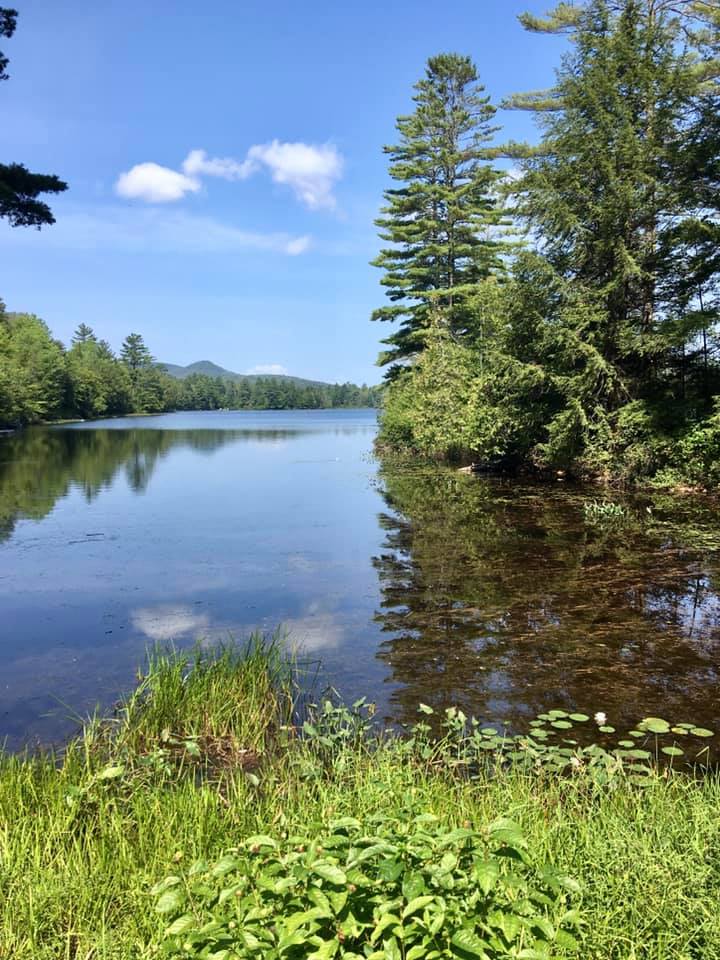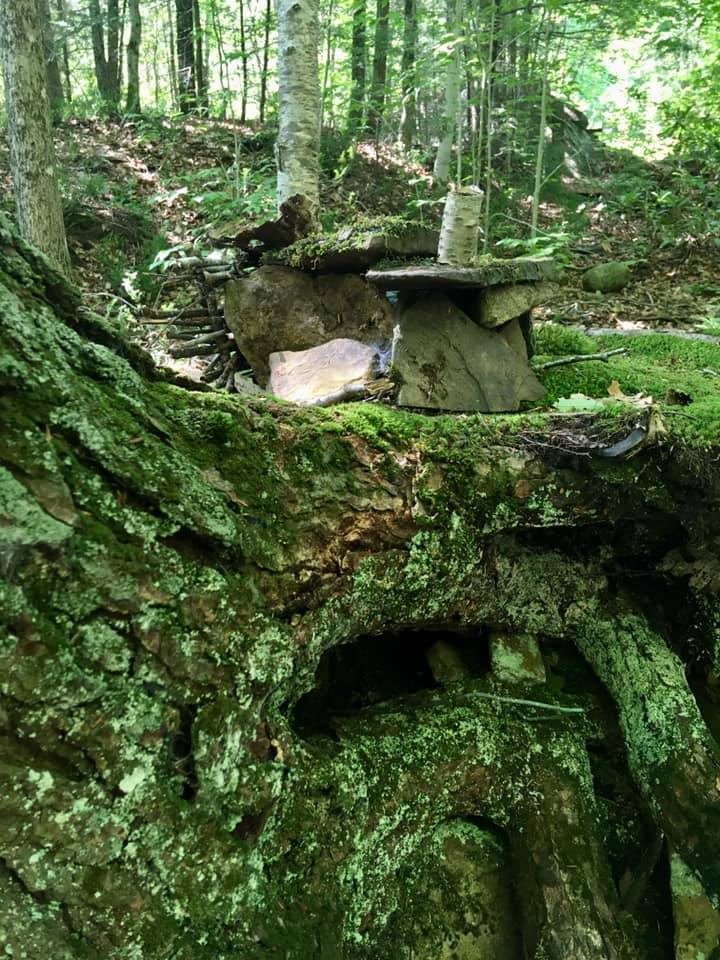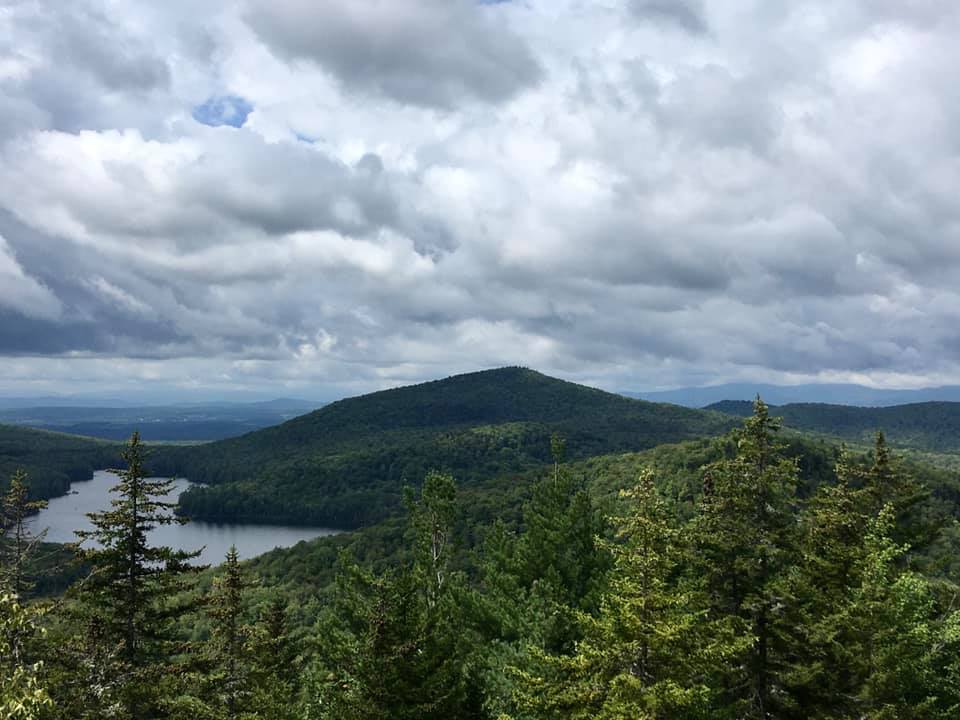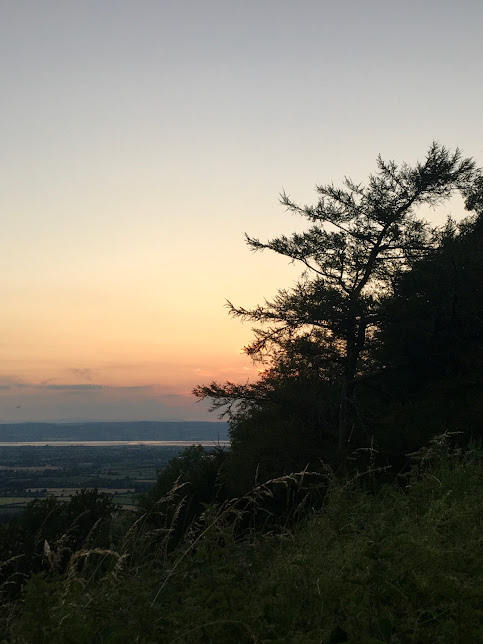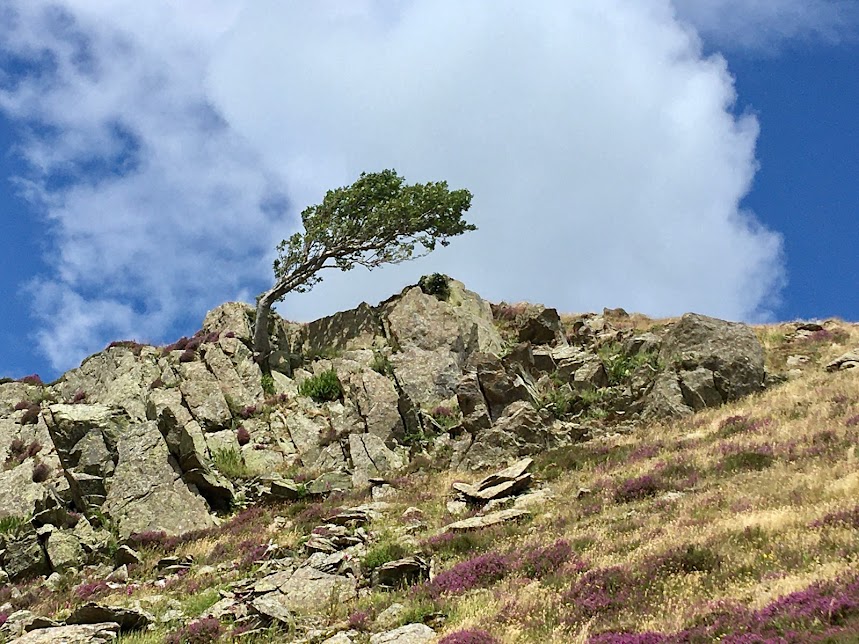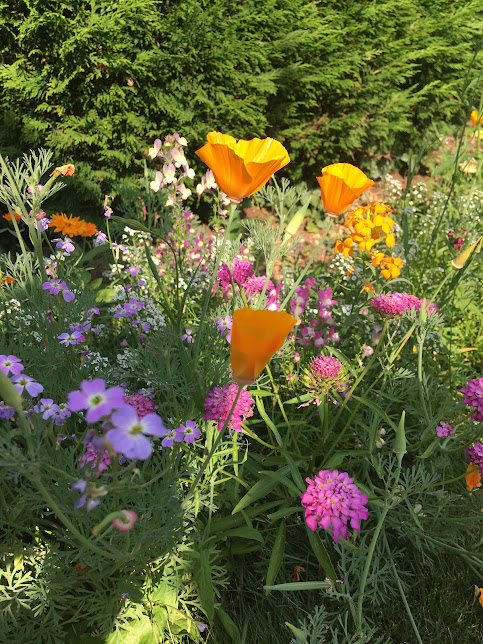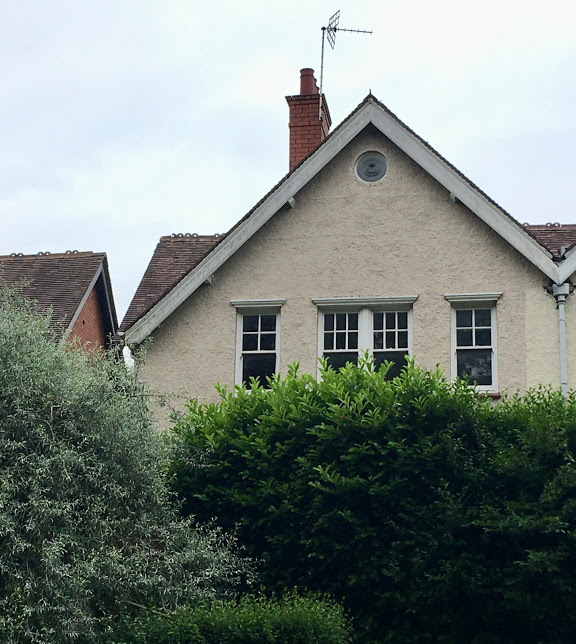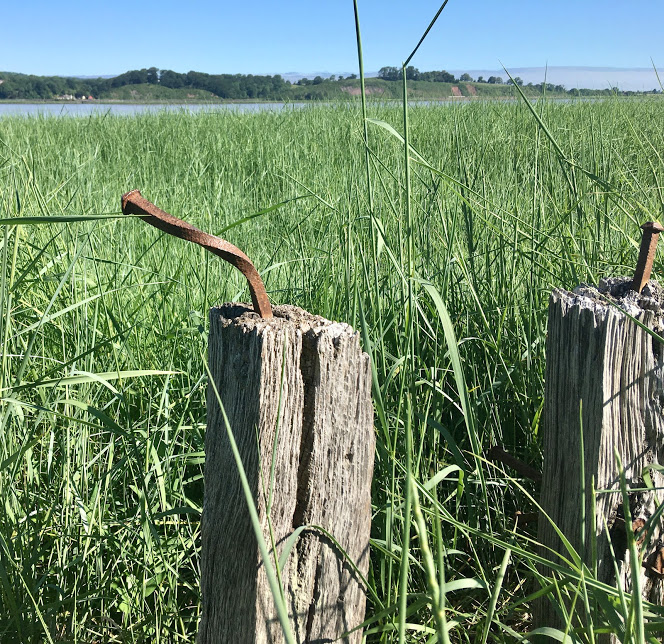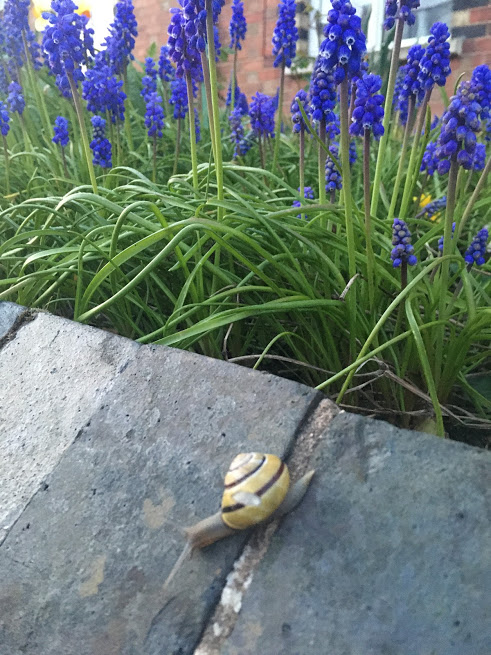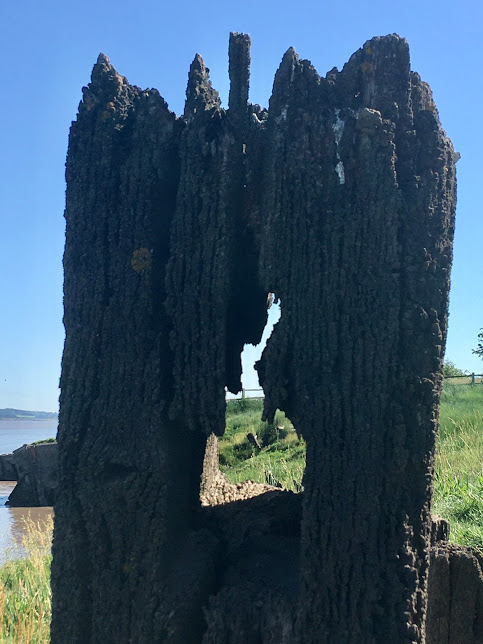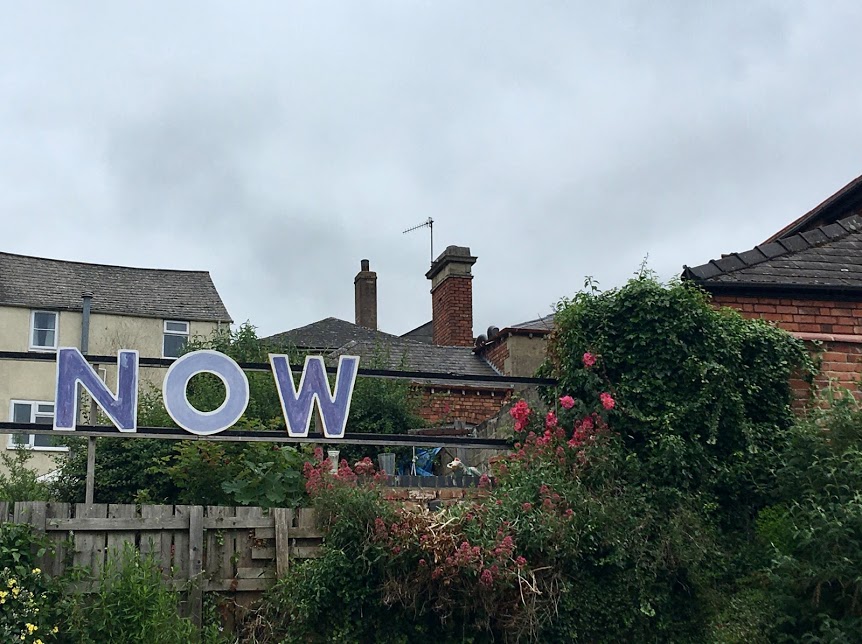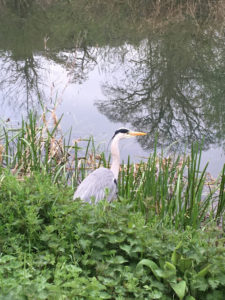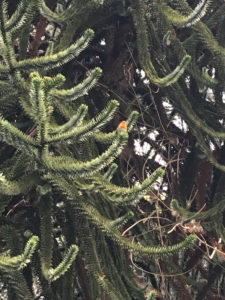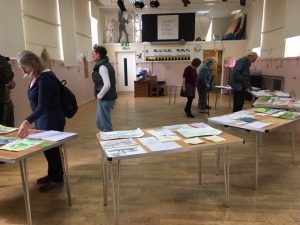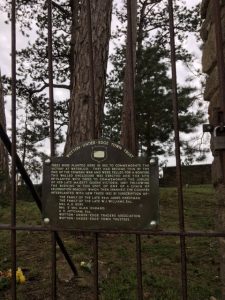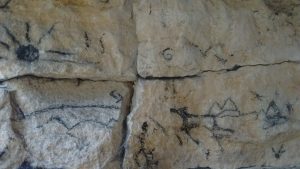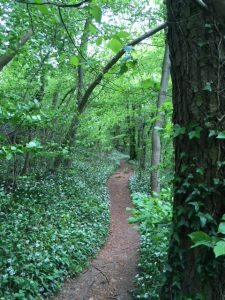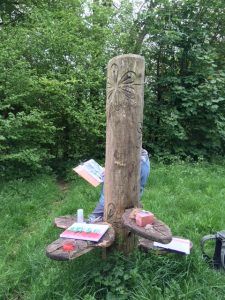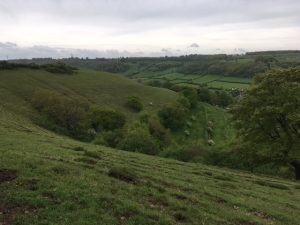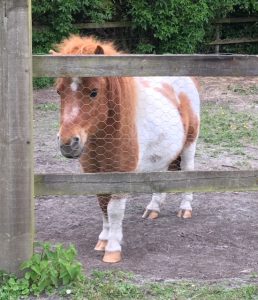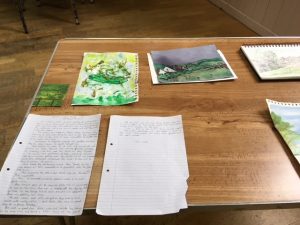Because exploring is so beneficial to creative life, I like to pay tribute to some of my favourite excursions, treks, or simply spellbound mooches from the year. I usually walk over 100,000 steps per week (some of that is tracking my students up and down the stairs at work), so I had a few hikes to choose from. See if any of these inspire you. Maybe some already have!
Grand Union Canal, Chilterns, UK
We spent an unseasonably warm, perfect March weekend in a yurt near the Chiltern hills, with the Grand Union Canal just a couple fields away. We followed it around the reservoir at wonderfully-named Startop’s End, meeting geese and mandarin ducks and bulrushes, and down the Wendover Arm. This bit was added in 1797 (yes, a recent addition…) to remedy supply problems in the main canal. There was a WWII airfield nearby, later used to house Polish refugees crammed into tin shelters.
Meredith, New Hampshire, USA
We had a relatively short walk here on a showery August day. This town is on Lake Winnipesaukee so is a bit of a tourist destination, with a giant Adirondack chair, overflowing flower boxes, souvenir shops, Ben and Jerry’s counter, and a waterfall running down from an old waterwheel. The lake itself is a fine sight, nine miles across at its widest, and the town hosts a sculpture trail every summer, with new, enchanting pieces on the waterfront and around town each year.
Exeter, Devon, UK
I did my own personal writing retreat in Exeter, booking a room in a hotel with a pool and editing The Gospel of Eve till midnight at my desk, as well as on the train journey there and back. I visited the cathedral and kicked through autumn leaves alongside the old city walls, locating the arches of the medieval bridge. I trailed the River Exe too, watched the sunset, and got through a whole chapter over a delicious tapas lunch. This smallish city is the perfect size to alternate writing sprints with walks, since there are plenty of destinations within easy reach.
Braunton Burrows, North Devon, UK
I only learned this place existed from Raynor Winn’s The Salt Path. Who would have thought—sand dunes in Britain! We were clifftop camping at the time, and went to check it out. We headed down your average bush-lined path with marshy grasses and the occasional hint of brine on the breeze, and after a while the view widened and the land tilted and we were approaching massive sandy slopes, with people bodyboarding down them. The area was used for practice before D-Day, and is still a military training area. So rather surreally, as we admired the sand in the July sunshine, we heard gunfire and truck engines.
Stowe, Vermont, USA
We visited Stowe during our Christmas trip to be with family, and found a winter wonderland. There were horse-drawn sleighs jingling through the woods, with ski mountains in the background. Our alpine-style motel had hot tubs out in the snow, and easy access to the 5.3-mile recreational path that follows the West branch of the Little River. In town, we made use of the free shuttle bus after grabbing a timetable from the tourism office which also offered rocking chairs in front of a flaming fireplace.
Lyme Regis, Dorset, UK
I love fossil-hunting. There’s something really addictive about it. While staying at a B&B on the Jurassic Coast, we learned about Monmouth Beach, also known as the “Ammonite Pavement.” We’d been to Lyme Regis before but hadn’t realised there’s a fossil beach virtually next to the Cobb. The car park is between them, so we charged our car there while first ambling across Monmouth Beach, with massive fossils visible in slabs beneath our feet, the ammonite spirals taking us back in time for millennia. I dug fragments from the exposed clay layers on the shore. Then we went the other way, past the pretty buildings and under the ammonite-shaped streetlights of the Cobb waterfront, and found some lunch.
Marsh-Billings-Rockefeller National Park, Woodstock, Vermont, USA
Billings Farm, a working, late-19th century reenactment site, is a favourite destination for us especially since my sister works there and offers expert behind-the-scenes takes. But we hadn’t explored the trails and the area around the main house, now a national park, until this summer. The gardens were beautiful and the pool looked lush on this hot day. We went up through piney forests and around the pond, over South Peak taking in the mountain views, then descended the switchbacks of the Faulkner Trail to find ourselves in Woodstock, with its pretty houses and covered bridges, long green and lively shops. After some well-earned ice cream, we crossed the river back to Billings.
